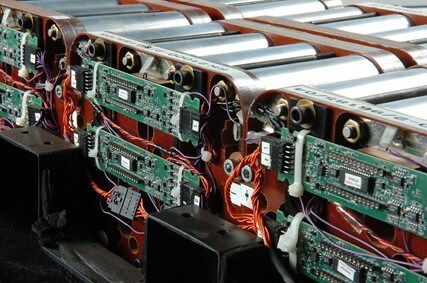Chung-Ang University Team Achieves High-Safety Ultra-Fast Charging for Lithium Batteries
Lithium-ion (Li-ion) batteries are indispensable for modern devices like electric vehicles, which are playing an increasingly crucial role in people's lives. However, to fully electrify vehicles with Li-ion batteries, the main hurdle is achieving rapid charging without compromising energy density. The convenience and acceptance of electric vehicles by consumers are also influenced by factors such as their range and charging times. Additionally, the utilization of Li plating for ultra-fast charging raises safety concerns due to high cell polarization, requiring careful attention.

In a new study published in Energy Storage Materials, led by Associate Professor Janghyuk Moon of Chung-Ang University, researchers have introduced an innovative strategy to mitigate polarization due to concentration-based effects, addressing this challenge. Their paper was made available online on September 30, 2023, and published in Volume 63 of the journal in November 2023. According to Dr. Moon, "Our study aims to enhance the range and reduce charging times of electric vehicles by developing advanced battery technologies, specifically leveraging the commonly used LiPF6 and linear carbonates in commercial batteries. By improving the kinetics and stability of batteries under fast charging conditions, we hope to make a meaningful impact on the EV industry and ultimately on people's daily lives."
This study investigated how using certain electrolytes, such as linear carbonate-based ones with concentrated LiPF6, affects the process of removing the solvent (desolvation) from Li-ion and its quick insertion into the graphite anode. To make this happen, electrolytes with low activation energy, including dimethyl carbonate, ethyl methyl carbonate, and diethyl carbonate with a special focus on dimethyl carbonate, were used to make it easier to overcome the barrier to desolvation. Laboratory tests confirmed that these electrolytes enhance the fast-charging capabilities of Li-ion batteries, as evidenced by a 1.2-Ah pouch cell retaining three times more capacity over 200 cycles. It also prevented cell swelling caused by Li plating, a common issue with traditional electrolytes.
The study also utilized "molecular dynamics" to theoretically simulate liquid electrolyte structures at varying concentrations, both high and low. These aimed to understand micro-environmental changes within the battery system, offering insights into how the electrolyte affects interface kinetics and battery performance. This combined approach of practical experimentation and computational analysis highlights the significance of this study in advancing battery technology for practical applications, particularly in electric vehicles.
"By enhancing battery performance in terms of faster charging and extended range, this study directly contributes to making electric vehicles more practical and appealing to a broader electric vehicle user. If this leads to increased convenience for people, it could further boost the widespread adoption of these vehicles. In the long term, such technological improvements could play a crucial role in reducing carbon emissions and mitigating climate change, profoundly impacting people's lives and the health of our planet," envisions Dr. Moon.
In summary, researchers investigated the effects of cell polarization causing harmful Li plating in Li-ion batteries and demonstrated a stepwise improvement in interfacial kinetics by the engineering of high concentration electrolytes and additives. This study thus provides valuable insights for future electrolytes that can enhance the extremely fast-charging abilities of Li-ion batteries, potentially promoting the widespread adoption of Li-ion batteries in next-generation applications!
Reference
Title of original paper: Boosting interfacial kinetics in extremely fast rechargeable Li-ion batteries with linear carbonate-based, LiPF6-concentrated electrolyte
Journal: Energy Storage Materials
DOI: https://doi.org/10.1016/j.ensm.2023.102995
About Chung-Ang University
Website: https://neweng.cau.ac.kr/index.do.
Comments (0)
This post does not have any comments. Be the first to leave a comment below.
Featured Product

